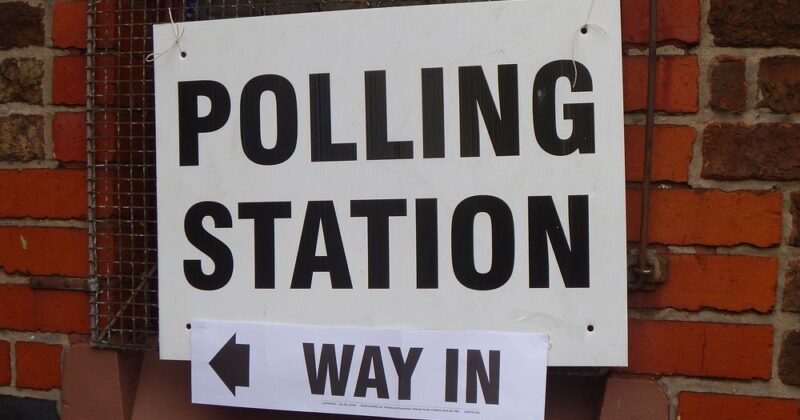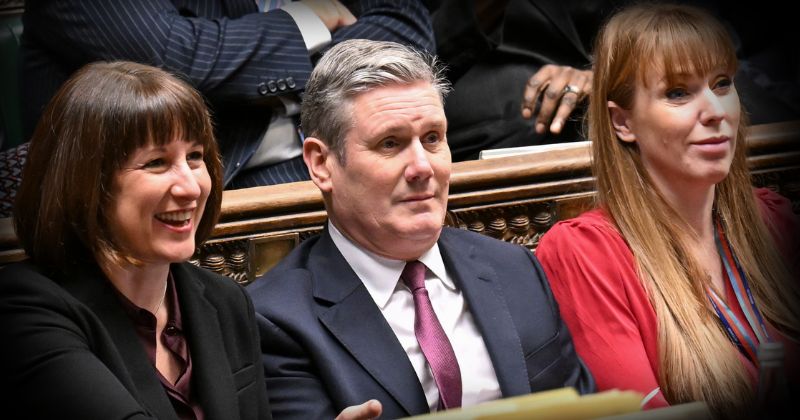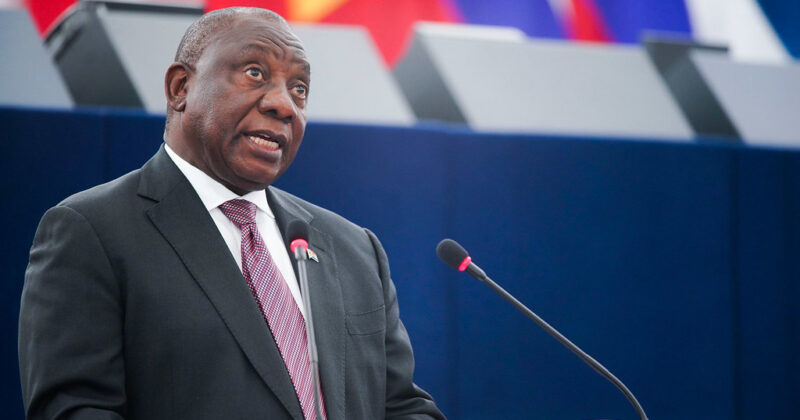A rout for the parties of austerity – an opportunity for the left
 The Greek elections have demonstrated a massive popular rejection of the governing parties who support the EU-IMF austerity memorandum that has caused so much suffering to ordinary Greek people over the last two years.
The Greek elections have demonstrated a massive popular rejection of the governing parties who support the EU-IMF austerity memorandum that has caused so much suffering to ordinary Greek people over the last two years.
New Democracy (ND), which won 33.5 per cent in 2009, is in first place with 18.9 per cent, a loss of 14.6 per cent of the popular vote. Pasok, which won 43.9 per cent of the vote in 2009, slumped to third place with 13.2 per cent, down by a staggering 30.7 per cent.
By contrast, the left reformist coalition Syriza leapt into second place with 16.7 per cent (up from 4.6 per cent in 2009). This increase of 12.2 per cent of the popular vote represents almost four times as many actual votes. Dimar, a split off to the right from Syriza, gained 6.07 per cent.
The Syriza leader, Alexis Tsipras, says that he wants to form a coalition of the left wing parties that reject the terms of Greece’s bailouts. “The parties that signed the memorandum (with the EU and the IMF) are now a minority. The public verdict has de-legitimised them,” he said, “Our proposal is a left wing government that, with the backing of the people, will negate the memorandum and put a stop to our nation’s predetermined course towards misery.”
The traditional party of the most militant, industrially-based, section of the Greek working class, the Greek Communist Party (KKE), gained relatively little in the overall polarisation of Greek politics between right and left. It gained 8.41 per cent, only 0.9 per cent more than in 2009.
Of course, as in all varieties of capitalist democracy, there are many distorting measures built into the Greek constitution aimed at frustrating the popular will and making sure that the outcome is not “the rule of the people”. New Democracy will get 50 bonus seats because it is the first party, around 110 out of the total of 300, with less than 20% of the votes! The second party, Syriza, will get 51 seats with 16.5% of the votes. So a 3.2% difference in votes is turned into a 59 seat, virtually 20%, advantage for ND.
Syriza has undoubtedly surged forward because it proposed – in however reformist a way – a governmental alternative to the “major parties”. It has called for a left coalition that “rejects austerity”. The KKE did relatively poorly because, for all its left talk and its associated union PAME’s militancy, it is obstructing the formation of such a “rejectionist” government.
Moreover, despite its old style, left Stalinist “revolutionary rhetoric”, it and PAME have for two years blocked calls for an all out general strike to bring down the austerity government. Given the severity of the Greek crisis and the revolutionary situation testified by the string of one and two day general strikes, its intransigence is entirely bogus.
The swing to the left parties and the growth of the neo-Nazi Golden Dawn (6.92 per cent and 21 seats) are clear evidence that Greece is in a deep pre-revolutionary situation.
In such conditions, the KKE’s policy, refusing to form a coalition with the other left parties on the grounds that it would be a bourgeois government, is a massive obstacle to keeping out the pro-austerity right and centre right parties. This is like a crude copy of the German Communist Party’s “third period” policy in 1929-33, obstructing a united front against the Nazis with the reformist SPD and its huge trade unions because they were reformist and pro-capitalist.
It is encouraging that the small forces of the far left grouped in Antarsya also quadrupled their vote to 1.19 per cent from 0.36 per cent in 2009. Antarsya is a coalition of 10 far left organisations, including the section of the Fourth International (OKDE-Spartakos) and the International Socialist Tendency (SEK). The name is an acronym for Anticapitalist Left Cooperation for the Overthrow but also sounds the same as the Greek word for mutiny.
Antarsya’s programme
Antarsya put forward a militant policy of rejection of the EU memoranda and key demands to protect and preserve the social gains, wages and jobs of the working and popular classes. Their key demands are
• Immediately terminate the loan agreement, any memoranda and all related measures.
• Do not recognise the debt – debt cancellation and suspension of payments.
• Break with the system and with the euro/EU.
• Nationalise the banks and corporations without compensation and under workers’ control.
• Immediately increase wages and pensions! Cancel the poll tax and increase the taxation of capital.
• Prohibit layoffs and fully protect the unemployed. Shorten working hours and reduce the retirement age.
• Expropriate hundreds of closed factories and re-commission them, controlled by the employees themselves.
• Provide cheap and good quality food through agricultural cooperatives, poor and middle farmers, without middlemen and large producers.
To impose these measures Antarsya calls for “an uprising of the entire working population, an anticapitalist revolution”.
It states: “Our way leads to a break with capitalism, by the overthrow of the current authoritarian political system and its replacement with a democracy and the power of the workers, with the widest control to be exercised by the workers and by the people. If the united front of workers, intellectuals and creative people take over leadership, we can live in dignity, use the social productive forces collectively and break with the logic of profit, the market, ‘competitiveness’ and environmental degradation.”
On the question of the outcome of the election, however, Antarsya’s programme was a terrible muddle. It did not even address the fact that the reformist parties – Syriza, KKE, and DIMA – plus the trade unions, represent the overwhelming mass of the working class and that the working class rejects austerity and is seeking a way out of it via these parties. Although it is certainly true, and has to be said clearly, that the workers are mistaken and “their” parties will betray them, it is not enough to leave it at that.
The burning question is how the workers can break from their leaders before they are betrayed and defeated. Only to denounce the leaders will never be enough to break workers’ illusions in them and to form a new leadership. Even though they denounce the Troika regime, the reformist parties and unions, under their present policies and leaderships, represent a formidable obstacle to “a working people’s uprising” and “an anticapitalist revolution.” The question is how to break up this obstacle?
United front
Revolutionary strategy must be based on doing more than exposure plus carrying on, however bravely and energetically, at a local and national level with protests, direct action, demonstrations, occupations and with the 24 or 48 hour protest general strikes.
Antarsya calls for a united front but “a united front of all those who want a break with the system and revolution”. But this means a united front with those who already agree with Antarsya’s objectives. That is not the united front that the Greek working class needs, and needs urgently. What it needs is a united front of all the forces that want to reject austerity – be they reformist or revolutionary.
That should not be confused with the unity that Antarsya itself needs. That needs the unification of the 10 organisations within Antarsya into a single, democratic, disciplined and centralised party around an action programme for working class power.
At the same time, that party should call on the reformist parties and unions to form a mass united front and it should direct that call both to their mass membership and to their leaders.
At city, town and even village level, the rejectionist united front should be based on resisting the cuts and closures, mobilising the unemployed, pupils, students, and pensioners alongside public and private sector workers. Mass meetings in the workplaces and the localities should elect councils of recallable delegates. In these bodies, the revolutionaries, rejecting sectarianism, must seek to draw in those from all the workers’ parties and those outside the parties. The growth of the neo-Nazi New Dawn, as well as police repression, makes the formation of workers’ and youth defence guards a vital necessity at local level.
But such a united front will be ineffective in breaking the hold of the reformist leaders over their mass following unless it includes agitating for these leaders to unite against the crisis at all levels. This includes a call on these leaders to break with the capitalist parties, with the EU memoranda and the agencies of the Troika, and to form a workers’ government to reject the austerity and make the rich, including the billionaire bondholders of Europe, pay.
They should depend not on the forces and bureaucratic apparatus of the capitalist state but upon councils of action formed by the unions, the popular assemblies, the youth and the unemployed. They should create a mass popular militia to enforce its decrees.
A large majority of Greeks (65 per cent) voted to reject austerity. There is, thus, a popular mandate against a ND-Pasok continuation of the destruction of the lives of the people. Even a parliamentary minority government would have the sympathy of the popular majority if it acted to cancel the debts and break with the Troika. It could rely on the mass mobilisation of the unions, the assemblies of the youth and the unemployed, the small farmers and ruined small business people even to defend it against the sabotage of the bourgeois parties and the state machine.
Of course, the reformist leaders would waver and seek to betray but, if their supporters were mobilised alongside revolutionary forces, this could be checked and the road opened to a real anticapitalist revolution that would put power into the hands of the workers, youth and small farmers.
Such an active revolutionary strategy, aimed at winning the reformist workers away from their opportunist (Syriza) and sectarian (KKE) leaders is truly vital. If the Greek working class remains paralysed from struggling for power by its leaders, then the forces of the fascist right will continue to grow; a situation ripe for revolution will go rotten. As Trotsky said; the wine will turn to vinegar.
Time is not limitless, a re-evaluation of revolutionary policy is urgent and then action on this basis even more so.









